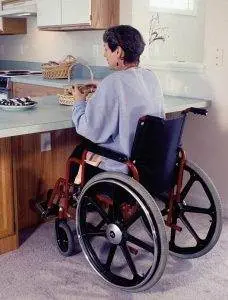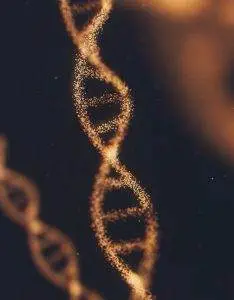By Qineng Tan, L.Ac., Ph.D. and Xiaomei Cai, L.Ac., Ph.D.

Huntington’s disease is a rare genetic disorder that causes progressive neurodegenerative disease. A neurological disorder, Huntington’s causes damage to brain cells, which leads to physical symptoms like tremor, cognitive problems, and mental disorders, including feelings of depression.
Signs of Huntington’s disease (HD) can begin to show up at any time after age two, and in some cases, a child may develop juvenile Huntington’s disease. Most often, though, a person does not begin to have symptoms of Huntington’s disease until adulthood, usually when they are in their 30s or 40s. Huntington’s is a progressive disease in which symptoms become increasingly severe over time.
Medical science does not currently have a cure for Huntington’s, nor a treatment that will halt the progression of Huntington’s disease. Patients may receive treatment in the form of medications and physical therapy to help control physical symptoms like shaking hands and involuntary movements. They may also be prescribed psychiatric medications to try to help with depression and anxiety.
Acupuncture and TCM can be an effective adjunct and alternative treatment for Huntington’s disease, helping to protect and stimulate the nervous system. TCM can also help address mental health and emotional disorders, like depression, anxiety, and mood swings.
Huntington’s Disease Symptoms
People with Huntington’s disease may start off having a variety of mild symptoms. Over time, the symptoms may change, with some coming or going, and some getting worse. Signs of Huntington’s disease can be related to involuntary movements of the body, cognitive decline that affects a person’s thinking processes, and psychiatric disorders that cause emotional upset. Some of the most common symptoms of Huntington’s disease include:
- Uncontrollable movements: involuntary jerking of the limbs, or writhing, also known as chorea
- Stiff limbs, muscle stiffness, neck stiffness
- Tremor, shaky hands, difficulty holding things
- Slow or unusual eye movements
- Problems with balance or walking
- Difficulty swallowing
- Speech problems, slurred speech
- Having a hard time focusing on a a task
- Having a hard time finding the right words or processing information
- Getting completely caught up with a task or thought pattern
- Impulsive behavior or emotional outbursts
- Lack of awareness of how one is behaving or one’s own changing abilities
- Feelings of apathy, sadness, depression, suicidal ideation
- Manic behaviors or OCD (obsessive-compulsive disorder)
- Trouble sleeping, insomnia
- Extreme fatigue
- Weight loss
Symptoms of Huntington’s disease worsen gradually over time, until ultimately, a person will need assistance to move and eat.
What Are the 5 Stages of Huntington’s Disease?
Huntington’s is a progressive disorder of the brain that causes symptoms to increase in severity over the course of several years. The progression from experiencing mild symptoms to needing assistance due to disability could take 10 years, or a person might live another 30 years.
Sometimes you will hear doctors refer to 3 stages of Huntington’s Disease, or the following 5 stages:
- Preclinical Stage – during this time, a person with Huntington’s may begin to notice mood swings, irritability, and other emotional and cognitive issues beginning to develop, but they have not yet been diagnosed with Huntington’s.
- Early Stage – as physical symptoms like tremors and trouble with eating and sleeping begin to become more and more noticeable, a person will seek medical help and be diagnosed. At this point, they can still carry on with most normal activities without help.
- Middle Stage – during the middle stages of Huntington’s a person will begin to need assistance with things like driving and domestic tasks, as they may not be able to coordinate movements reliably or think through problems or take in new information.
- Late Stage – as Hungtington’s disease progresses further, a person may have memory loss, dementia, and changes in personality. They will likely be bedridden and need help with eating, possibly requiring a feeding tube because of trouble swallowing.
- End of Life Stage – there comes a point when a person with Huntington’s will need end of life care, either in a hospital or at home, when they will need to be as comfortable as possible. The most common cause of death with Huntington’s is pneumonia, which can happen when a person aspirates food particles into the lungs.
How is Huntington’s Disease Inherited?

Huntington’s disease is a type of autosomal dominant disorder, which means that a person only needs to inherit one dominant gene from one parent in order to inherit this disorder. If a person has HD, there is a 50% chance that they will pass it on to a child. If a child of a person with HD does not inherit the gene, and therefore does not have HD, then that means they will not pass it on to their children. It is rare, but possible, for a person to be born with a new mutation in the specific gene, and so does not actually inherit HD from a parent.
Because HD typically does not begin to show up until close to middle age, some people who know that they may have the genetic mutation will have genetic testing for Huntington’s disease. This test will tell most people whether or not they will begin to develop Huntington’s symptoms as they age. However, there is a “gray area,” in which a person may have some of the mutated sequencing in their genetic makeup, but not enough to necessarily lead to the development of the disease. These people can still pass on the mutation to their children, and they may have a less severe form of Huntington’s, and/or not develop symptoms until later in life.
Can Acupuncture Help Huntington’s Disease?
Scientific research has been demonstrating more and more that acupuncture can help with many conditions by maintaining the health and connectivity of brain cells and nerve cells. Cells are constantly going through processes of generation and degeneration. The stimulation of certain acupoints has been shown to have a positive effect on these processes, which can be beneficial for people with neurological disorders like HD and Parkinson’s.
Even though we know that Huntington’s and Parkinson’s are specifically related to protein production, we also know that disease is not merely about one small, isolated thing happening in the body. We must take the whole person into account. Stress and many other factors also play a role in how a disease affects each individual. Acupuncture can be a helpful modality that reduces stress in the body and facilitates regeneration and protection of cells.
With TCM, we are able to address the physical, mental, and emotional aspects of Huntington’s disease all at the same time.
Chinese herbs have traditionally been used to help symptoms such as tremors, stiff limbs, muscle weakness, and slow movements. While from the medical point of view these problems are related to the nervous system, in TCM theory we also see them as being related to deficiencies in the kidney Qi, and excess wind. Therefore, herbs that help strengthen the Kidneys and dispel wind may be used in different combinations to treat conditions like Huntington’s disease.
Acupuncture treatment has been shown to help reduce tremors and shaky hands. One study showed that Chinese herbal preparations were effective at helping to reduce involuntary movements. Another study showed that herbs helped with the normal production of proteins and brain cell function.
Neurological Treatment With Acupuncture

Acupuncture and TCM can help with many different kinds of neurodegenerative disorders, whether they are caused by genetics, autoimmune disease, or some other neurological problem.
Neurodegenerative diseases cause the degeneration and death of neurons, or brain cells that communicate with the nervous system. In that sense, Huntington’s disease bears some similarities to other neurodegenerative diseases like:
- Parkinson’s disease
- Alzheimer’s disease
- ALS (Lou Gehrig’s disease)
- Spinal muscular atrophy
- Essential Tremor
- Multiple Sclerosis (MS)
- Bell’s Palsy
- Guillain-Barre syndrome
Many of these conditions can be helped with acupuncture, which is known to help improve the health of the brain, nerves, spinal cord, and the electrical impulses that create connectivity and functionality in the movements of the musculoskeletal system. TCM modalities can also help to relieve stress, improve sleep, boost cognitive function, and regulate mood swings.
Acupuncture Near Me for Huntington’s Disease, Los Angeles Area
Huntington’s disease is a progressive illness, and it becomes harder and harder for a person with HD to communicate what they are feeling. People with Huntington’s may experience both physical and emotional pain. Patients with Huntington’s need a caring team of healthcare providers who can help treat the disease, but also help their emotional and mental health.
At Art of Wellness, we have over 30 years of experience helping people with neurodegenerative disorders feel more comfortable and live the fullest life possible.
*This article is for education from the perspective of Traditional Chinese Medicine only. The education provided by this article is not approved by FDA to diagnose, prevent, treat and cure human diseases. It should not stop you from consulting with your physician for your medical conditions. Traditional Chinese Medicine is based on Qi, which is an invisible force that usually cannot be observed by modern science. Because science focuses on testing ideas about the natural world with evidence obtained through observation, these aspects of acupuncture can’t be studied by science. Therefore acupuncture and Chinese herbs are often not supported by double-blind, randomized trials, and they are considered alternative medicine therapies in the United States.
